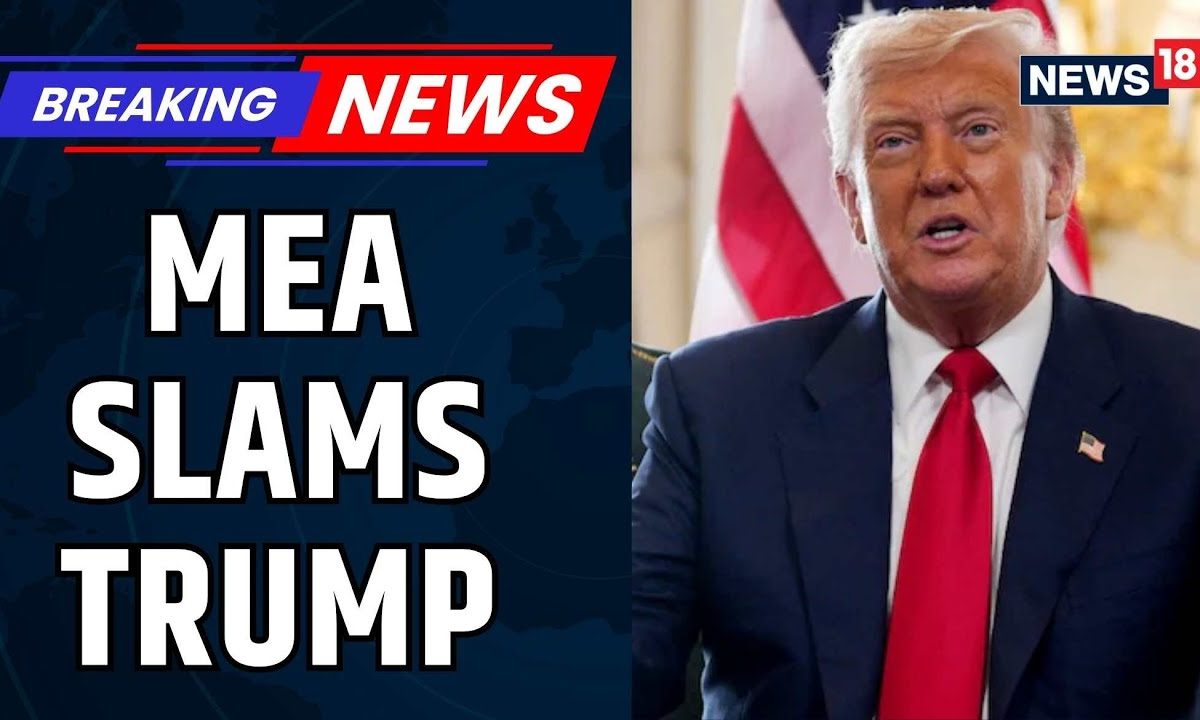

The Indian Ministry of External Affairs (MEA) has strongly criticized U.S. President Donald Trump's decision to impose an additional 25% tariff on Indian goods, raising the total tariff to 50%. The move, which comes as a penalty for New Delhi's continued purchase of Russian oil, has been described as "unfair, unjustified, and unreasonable" by the MEA.
MEA spokesperson Randhir Jaiswal reiterated India's firm stance on defending its economic sovereignty, stating that the U.S. decision to target India for actions that many other countries are also undertaking in their national interest is deeply "unfair and unjustified". Jaiswal emphasized that India's energy imports are based on market factors and aimed at ensuring the energy security of 1.4 billion people.
The MEA asserted that India will take all necessary steps to protect its national interests. The ministry's statement underscores India's commitment to its energy security and its willingness to defend its economic choices in the face of external pressure.
The tariff increase is likely to hit sectors such as textiles, marine, and leather exports hard. This could have a significant impact on Indian businesses and potentially affect trade relations between the two countries.
The U.S. has justified the tariffs as part of its broader response to Russia's actions in Ukraine. However, the Indian government has pointed out the "double standards" in the U.S. approach, as the U.S. continues to import certain goods from Russia, including uranium hexafluoride, palladium, fertilizers, and chemicals.
Several reports indicate that India is not the only country importing Russian energy. China is the number one overall purchaser of Russian energy, followed by India and Turkey. The MEA has questioned why India is being singled out for tariffs when other countries are also engaging in similar trade practices.
The tariff imposition has also drawn criticism from Indian political figures. Congress leader Rahul Gandhi described the move as "economic blackmail," accusing President Trump of attempting to bully India into signing an unfair trade agreement.
Despite the increased tariffs, India remains steadfast, emphasizing its compliance with global rules. India is preparing for negotiations with U.S. officials on August 25, 2025, amid concerns over potential economic impacts.
Analysts suggest that India has two main options: to negotiate a trade deal with the U.S. or strategically diversify its trading partners. Some experts believe that the U.S. might end up paying the price for the hiked trade tariff. They suggest that India has a plan B and has been bolstering its economy through agreements such as the FTA signed with the UK.